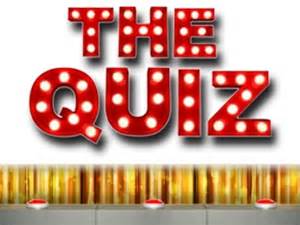Happy Monday!
Friday’s questions are here. The answers follow today’s Honor Roll.
Honor Roll
- Karen Allen, Karen Allen Law
- Alberto Bernabe, Professor, UIC School of Law
- Amy Butler, Esq.
- Andrew Delaney, Martin Delaney & Ricci Law Group
- Heather Devine, Tarrant Gillies Shems
- Rick Fadden, Barry Callebaut Group
- Robert Grundstein
- Nikolaus Houghton, Facey Goss McPhee
- Glenn Jarrett, Jarrett/Hoyt
- Douglas Keehn, Assistant Attorney General, Medicaid Fraud & Residential Abuse Unit
- Mary Kehoe, Esq.
- Keith Roberts, Darby Kolter & Roberts
- Joe Strain, Marsicovetere & Levine Law Group
- Jonathan Teller-Elsberg, Staff Attorney, New Hampshire Legal Assistance
- The Honorable John Valente, Vermont Superior Judge
- Jason Warfield, J.D.
- Thomas Wilkinson, Jr., Cozen O’Connor
ANSWERS
Questions 1 & 2
Earlier this week, I presented at the State’s Attorneys annual training. I mentioned the rule that governs a lawyer’s remarks during a trial. Later today, I’ll go over the rule again when I present at the Defender General’s annual training. While each group practices criminal law, the rule applies to all trials, whether criminal or civil. Questions 1 and 2 are about the rules.
Question 1.
Fill-in-the-blank.
“In trial, a lawyer shall not allude to any matter that the lawyer does not reasonably believe is relevant or that will be supported by _________ _____________.”
ADMISSIBLE EVIDENCE. V.R.Pr.C. 3.4(e).
Question 2
The same rule states that, in trial, a lawyer shall not “state a personal opinion as to” four things.
One point for each that you can identify.
It’s V.R.Pr.C. 3.4(e) and the four are:
- The justness of the cause.
- The credibility of a witness.
- The culpability of a civil litigant.
- The guilt of innocence of an accused.
Question 3
With the state prosecutors and public defenders in mind, here’s a question on conflicts.
When it comes to conflicts of interest, the rules on imputed conflicts are the same when a lawyer moves to & from government practice as they are when the lawyer moves from one private firm to another.
- A. True.
- B. False.
When a lawyer move from private firm to private firm, imputation is governed by V.R.Pr.C. 1.10. If a lawyer participated personally & substantially in a matter while at the old firm, and if the new firm is on the opposite side of the same matter, the new firm is disqualified upon lawyer’s job switch. We do not allow screening in that situation. By contrast, the disqualification of government lawyers is governed by V.R.Pr.C. 1.11, which allows screening when a lawyer moves to or from government practice.
Question 4
Having worked in the same county for years, Deputy State’s Attorney and Public Defender discuss opening a private law firm together. The plan would be to focus on representing parents who are involved in juvenile (CHINS) proceedings. The plan would include partnering with a licensed family therapist who would provide services to the firm’s clients. DSA, PD, and the licensed family therapist would each take a 1/3 ownership interest in the firm.
If DSA and PD contact me to ask whether the Vermont Rules of Professional Conduct allow for such an arrangement, it’s most likely that my answer will be:
- A. Yes.
- B. No. V.R.Pr.C. 5.4(d).
- C. The rules do not address this issue.
- D. The rules do not address this issue, but since you’re both state employees, you should check the State Ethics Code that the legislature passed last year.
Question 5
I don’t think I’ll have to suggest to the public defenders that they not do this in court.
In My Cousin Vinny, what did Vinny do during the prosecution’s opening statement that, arguably, violated the duties of competence & diligence that he owed to his clients, as well as the duty to refrain from undignified and discourteous conduct that was degrading to Judge Haller’s court?
ANSWER: Many people are going to be upset with me. However, the question asked what Vinny did “during the prosecution’s opening statement.” The answer is that he FELL ASLEEP. It was during his own opening statement, not the prosecution’s, that Vinny did this.
Bonus: Also in My Cousin Vinny, what was Mona Lisa Vito’s first response when the prosecutor attempted to discredit her as an expert witness by asking: “can you tell me, what would the correct ignition timing be on a 1955 Bel Air Chevrolet with a 327 cubic inch engine and a four-barrel carburetor?”
Despite Ms. Vito’s choice of language, Judge Haller didn’t seem offended or to consider it discourteous or degrading.
Mona Lisa Vito’s first response was “it’s a [bs] question.” It was only later that she called it a “trick question.” The voir dire begins at the 55 second mark of this clip, with the answer at 1:14.






